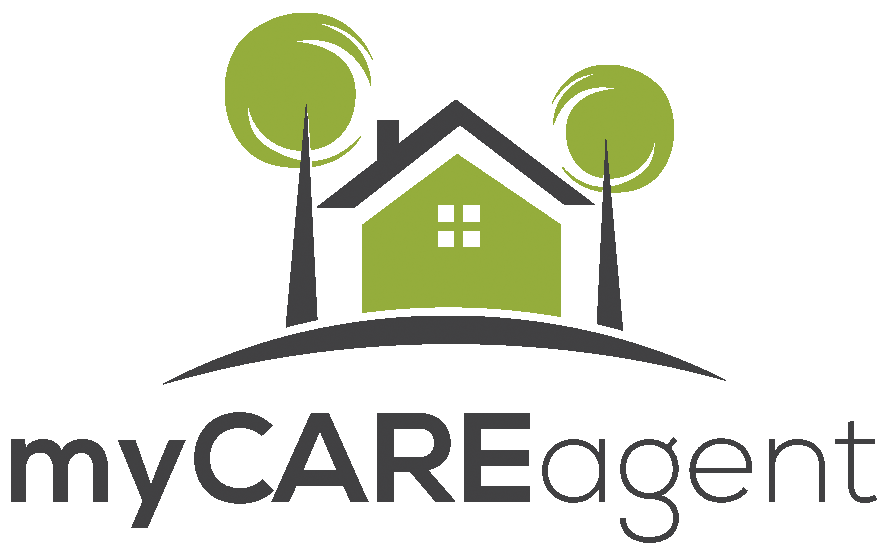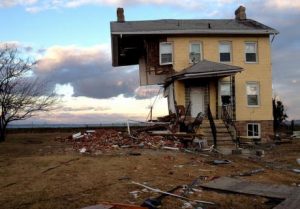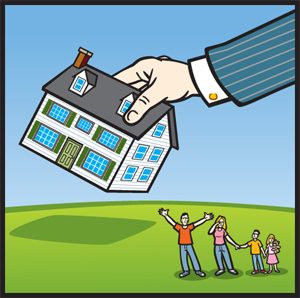
The Federal Housing Administration (FHA) provides programs to promote homeownership and to benefit both homebuyers and homeowners.
Although the country recently suffered through a housing crisis, it was nothing compared to the struggles homeowners faced in the 1930s. At that time, most home mortgages were only 3-5 years, and large balloon payments at the end of the term were common. Refinancing was not an option. The Great Depression forced lenders to retrieve due mortgages, and many borrowers (now unemployed) were unable to make the payments. Foreclosures skyrocketed. Homeownership declined and lending came to a standstill.
In 1934, the Federal Government introduced a solution, the National Housing Act of 1934. In it, the Federal Housing Administration (FHA) was born. These new lending practices increased the number of people who could afford a down payment on a house and the monthly debt service payments on a mortgage
What is The Federal Housing Administration (FHA)?
The Federal Housing Administration (FHA) is a United States government agency created as part of the National Housing Act of 1934. The FHA program has caused the greatest change in home mortgage lending the history of real estate finance. It sets standards for construction, underwriting and appraisals. The main purpose of the FHA program has been to promote homeownership, improve housing standards and conditions, and to provide an adequate home financing system through insurance of mortgage loans.
What Does the FHA Do?
The FHA does not make loans; rather, it insures lenders against loss. Loans are made by authorized lending institutions, such as banks, savings banks, and independent mortgage companies. As long as FHA guidelines are used in funding the loan, the FHA, upon default by the borrower, insures the lender against loss. If the borrower does default, the lender may foreclose and the FHA will pay cash up to the established limit of the insurance.
How Does the FHA Insure Loans?
An FHA-approved mortgage lender will charge the borrower a free for an insurance policy called Mutual Mortgage Insurance (MMI). The insurance requirement is how the FHA finances the program. The premium may be financed as part of the loan or paid in cash at the close of escrow.
How Do FHA Loans Benefit the Buyer?
The FHA guidelines encourage homeownership by allowing 100% of the down payment to be a gift from family or friends and by allowing closing costs to be financed to reduce the up-front cost of buying a home. The down payment on FHA loans varies with the amount of the loan.
Terms for an FHA Loan
Interest rates for an FHA loan are determined by mutual agreement between the borrower and the lender – they are not set by the Federal Reserve Board. The FHA maximum loan amounts vary from one county to another. It is important that the total loan amount, including financed closing costs, not exceed the maximum limit set by the FHA for the county in which the property is located. There are no income limits on FHA loans. Pre-payment penalty clauses are not allowed in FHA loans. Any qualified resident of the United States may obtain an FHA loan as long as the property will be the borrower’s principle residence and is located in the United States.
How to Apply For An FHA Loan
The borrower applies directly to the FHA-approved lender for the loan, not the FHA. FHA does not make loans, build homes, or insure the property. A buyer who would like to purchase a home with FHA financing would apply to an FHA-approved lender who would then request a conditional commitment from the FHA. Once the lender determines that the borrower and site qualify for the program, the lender will submit a firm commitment request to the FHA.
Types of FHA Loans
The FHA insures a variety of types of loans, from residential to construction loans.
Section 203(b) Residential Loan
The FHA 203(b) loan offers financing on the purchase or construction of owner-occupied residences of 1-4 units. This program offers 30-year, fixed rate, fully amortized mortgages with a down payment requirement as low as 3.5%, allowing financing of up to 96.5% of the value of the home.
Section 203(k) Rehabilitation Loan
A purchase rehabilitation loan (purchase rehab) is a great option for buyers who are looking to improve their property immediately upon purchase. This mortgage loan provides the funds to purchase your home and the funds to complete your improvement project all in one loan, one application, one set of fees, one closing, and one convenient monthly payment.
A purchase rehab loan could be used for a variety of improvements including something as simple as replacing carpet, to a full tear-down and rebuild.
Section 245(a) Graduated Payment Mortgage
A graduated payment mortgage (GPM) has a monthly payment that starts out at the lowest level and increases at a specific rate. Payments for the initial years cover only part of the interest due, with the unpaid amount added to the principle balance. After a specified time, the loan is recalculated, with the new payments staying the same from that point on. With this loan, the interest rate is not adjustable and does not change during the term of the loan. What actually changes is the amount of the monthly mortgage payment. A GPM is structured for buyers who expect to be earning substantially more after a few years and can commit to higher future payments.
Energy Efficient Mortgage
The Energy Efficient Mortgage (EEM) help homebuyers or homeowners save money on utility bills be enabling them to finance the cost of adding energy-efficient features to new or existing housing. The program provides mortgage insurance for the purchase or refinance of a principle residence that incorporates the cost of energy efficient improvements into the loan. Due to the anticipated energy conservation savings, lenders can be more flexible with underwriting guidelines.
Section 255 Home Equity Conversion Mortgage
A Home Equity Conversion Mortgage (HECM) is a type of reverse annuity mortgage. It is a program for homeowners who are 62 years and older who have paid off their mortgage or only have a small mortgage balance remaining. The program has three options for homeowners: (1) borrow against their home’s equity in one lump sum, (2) borrow on a monthly basis for a fixed term or for as long as they live in the home, or (3) borrow as a line of credit.
The borrower is not required to make payments as long as the borrower lives in the home. The loan is paid off when the property is sold. The FHA collects an insurance premium from all borrowers to provide mortgage coverage, which will cover any shortfall if the proceeds from the sale of the property are not sufficient to cover the loan amount. Senior citizens are charged a modest percentage of the home’s value as an initial payment plus a small percentage on the loan balance each year. These amounts are usually paid by the mortgage company and charged to the borrower’s principle balance. FHA’s reverse mortgage insurance makes this program less expensive to borrowers that the smaller reverse mortgage programs run by private companies without FHA insurance.





0 Responses
It’s really interesting, I didn’t have a clue of what FHA stood for before I read this article, it’s really interesting and useful to know. Thanks for sharing.